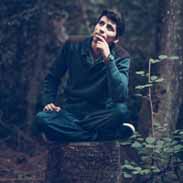Ch. 7: The First Two Years: Psychosocial Development – Flashcards
Unlock all answers in this set
Unlock answersquestion
An insecurely attached infant is likely to show: happiness. indifference. confidence. independence.
answer
b. indifference
question
Fourteen-month-old Carlos watches his older brother giggle and roll on the floor at SpongeBob on TV. Carlos then laughs and rolls on the floor whenever his brother does. This is an example of: social observation. social learning. a working model. learning to be autonomous.
answer
b. social learning
question
The experimental practice in which adults stare at their baby and remain expressionless is called: the Strange Situation. the still-face technique. synchrony. methods of attachment.
answer
b. the still-face technique
question
Synchrony between infant and parent becomes _______ frequent and _______ elaborate as time goes on. more; more more; less less; more less; less
answer
a. more; more
question
A theory that underlies the values and practices of a culture is a(n): ethnotheory. epigenetic theory. psychoanalytic theory. learning theory.
answer
a. ethnotheory
question
The importance of synchrony is that infants learn to: develop skills of social interaction. connect an internal state with an external expression. read others' emotions. All of these answers are correct.
answer
d. All of these answers are correct.
question
A temperamental adjustment that allows smooth infant-caregiver interaction is called: parenting-style adjustment. goodness of fit. adjustment of temperament. accommodation of temperament.
answer
b. goodness of fit.
question
When does an infant normally begin to express anger? 2 months 4 months 6 months 8 months
answer
c. 6 months
question
Which theorist is associated with a laboratory procedure called the Strange Situation? Freud Ainsworth Watson Strange
answer
b. Ainsworth
question
The still-face technique: shows that babies expect a positive response from their caregivers. measures quality of attachment. is not useful with babies over 2 months of age. teaches babies synchrony.
answer
a. shows that babies expect a positive response from their caregivers.
question
Satisfying a child's basic needs with care and consistency relates to: Erikson's first crisis of life. cognitive theory. Freud's first stage. social learning theory.
answer
a. Erikson's first crisis of life
question
At about 6 weeks, an infant expresses happiness in response to a human face by displaying: laughter. contentment. a social smile. a cooing sound.
answer
c. a social smile
question
When an infant is fearful of strangers, he or she is exhibiting: separation anxiety. stranger wariness. self-awareness. situational anxiety.
answer
b. social wariness
question
Freud's first stage of psychosexual development is: oral. mouth. anal. trust versus mistrust.
answer
a. oral
question
Albert crawls after his father when his father leaves the room. In doing so, Albert is exhibiting: proximity-seeking behavior. anxious behavior. synchrony. goodness of fit.
answer
a. proximity-seeking behavior



